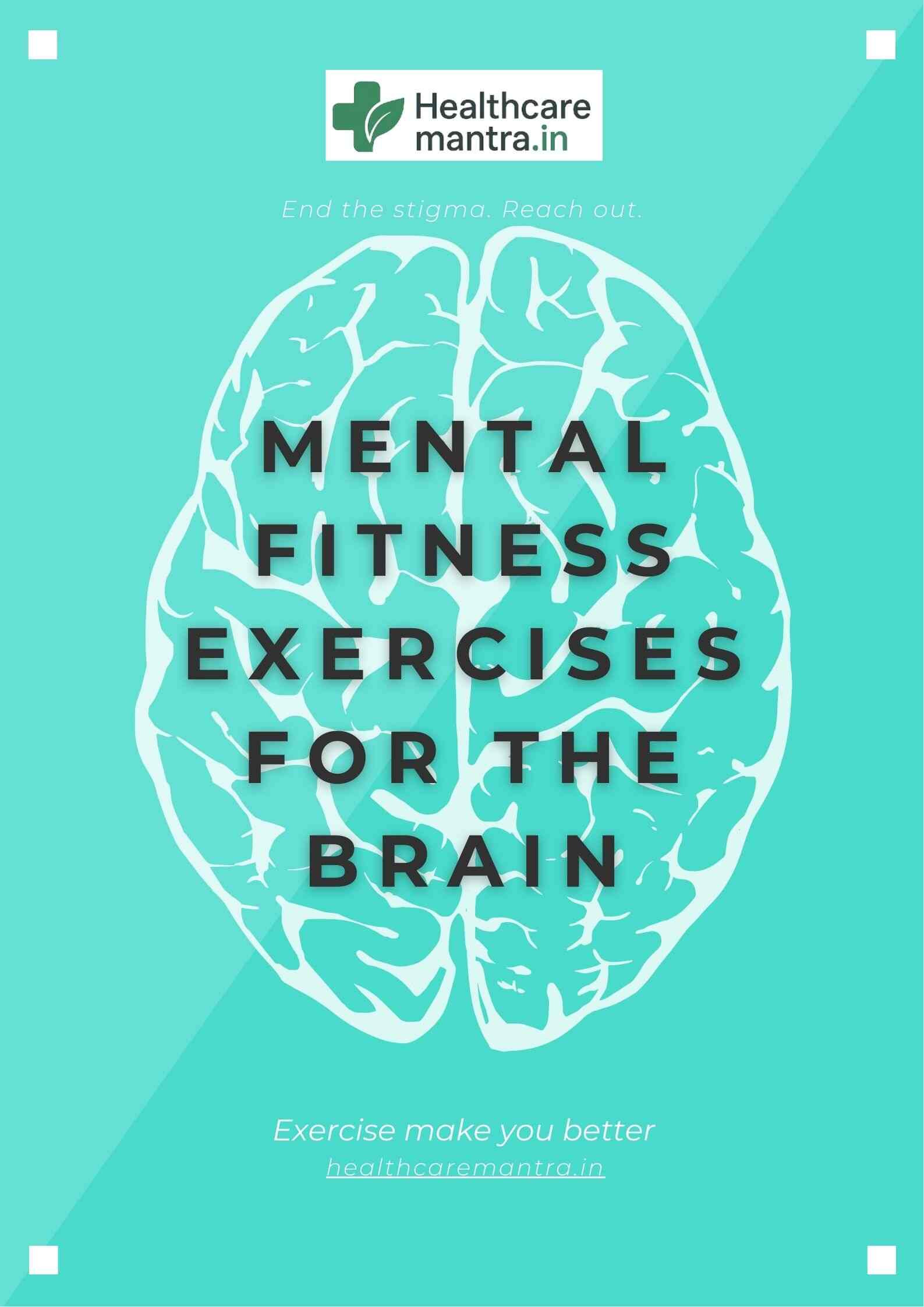
In today’s busy world, we often focus on keeping our bodies fit but forget that our brain also needs regular exercise. Just like physical workouts keep our muscles strong, mental fitness exercises keep our brain sharp, focused, and stress-free. Whether you’re a student, working professional, or retired, making time for brain workouts can boost your memory, creativity, and emotional well-being.
Why Mental Fitness Exercises Are as Important as Physical Workouts
Your brain is like a muscle—the more you use it, the stronger it gets. While physical workouts improve heart health, strength, and stamina, mental exercises strengthen cognitive skills like memory, problem-solving, and decision-making.
Prevents cognitive decline as you age.
Improves focus and productivity at work or studies.
Supports emotional resilience in stressful situations.
Boosts creativity and innovative thinking.
In short: A fit brain is the foundation of a fit life.
Simple Daily Mental Fitness Exercises Anyone Can Do
You don’t need expensive tools or hours of training. Small daily habits can keep your brain active.
Read something new – Books, articles, or research on topics outside your comfort zone.
Practice journaling – Writing thoughts helps organize your mind and reduce clutter.
Learn a new skill – Cooking, playing a musical instrument, or even a new language.
Meditation and mindfulness – Just 10 minutes daily improves mental clarity.
Puzzles and crosswords – Fun yet effective ways to challenge your brain.
How Mental Fitness Exercises Improve Focus and Memory
Brain workouts aren’t just about fun—they directly impact your focus and memory.
Neuroplasticity boost – Exercises help the brain form new connections and adapt.
Sharper memory recall – Regular practice of memory games or repetition techniques.
Improved concentration – Mindfulness reduces distractions and strengthens attention span.
Better learning ability – Mental exercises make it easier to grasp and retain new knowledge.
Stress Relief Through Mental Fitness Exercises
Stress affects not only the body but also the brain’s efficiency. Mental exercises can act as natural stress relievers.
Deep breathing and meditation calm the nervous system.
Visualization exercises create a sense of relaxation and positivity.
Gratitude journaling reduces anxiety by shifting focus to positive aspects of life.
Creative hobbies (painting, music, gardening) work like therapy for the brain.
These practices not only lower stress hormones but also bring emotional balance.
Fun Mental Fitness Exercises to Do with Family and Friends
Mental fitness doesn’t have to be a solo journey—it can be social and fun.
Board games and card games – Boost strategy, memory, and bonding.
Storytelling circles – Share stories to enhance imagination and listening skills.
Brain teaser challenges – Compete in riddles, puzzles, or quizzes.
Cooking together – Encourages creativity, teamwork, and problem-solving.
Dance or music sessions – Improves memory, coordination, and emotional connection.
Shared mental workouts create stronger family bonds while keeping everyone’s brain active.
FAQs About Mental Fitness Exercises
Q1. How much time should I spend on mental fitness daily?
Even 10–15 minutes a day of brain exercises can make a noticeable difference.
Q2. Can mental fitness exercises help prevent Alzheimer’s or dementia?
While they can’t fully prevent these conditions, regular mental stimulation reduces risks and slows cognitive decline.
Q3. Are physical exercises also good for mental fitness?
Yes! Activities like yoga, tai chi, and walking boost blood flow to the brain, supporting memory and focus.
Q4. Do I need apps or expensive tools for mental workouts?
Not at all. Simple activities like reading, journaling, puzzles, or mindful breathing are highly effective.
Q5. Can children and seniors also benefit from mental exercises?
Absolutely. Mental fitness is important for all age groups—it keeps children curious and helps seniors stay mentally sharp.
Conclusion
Mental fitness is just as important as physical health. By practicing daily exercises—whether it’s journaling, puzzles, mindfulness, or fun games—you can keep your brain sharp, stress-free, and creative. The best part? You don’t need hours of effort—just a few minutes of consistent practice each day can transform your mental strength.
Remember, a healthy mind fuels a healthy life. When you train your brain like a muscle, you not only think better—you also live better.